Health
Foods You Should Limit If You Have High Cholesterol
Published
12 months agoon

Shutterstock
In today’s health-conscious world, managing cholesterol levels is a priority for many, aiming to reduce the risk of heart disease and maintain overall well-being. Cholesterol management often revolves around dietary choices, specifically avoiding foods known to raise LDL (“bad”) cholesterol. This guide highlights 30 foods that are best consumed in moderation or substituted with healthier alternatives if you’re working to keep your cholesterol in check. From dairy products and meats high in saturated fats to sugary treats and processed foods, understanding what to limit can empower you to make informed decisions for a heart-healthy diet.
Red Meat

Shutterstock
Red meat, such as beef, pork, and lamb, is known for its high saturated fat content, which can contribute to an increase in LDL cholesterol levels in the blood. Frequent consumption of red meat has been linked to heart disease and stroke, making it important for individuals with high cholesterol to limit their intake. Opting for leaner cuts or substituting with poultry, fish, or plant-based protein sources can help manage cholesterol levels. Moderation is key, and incorporating a variety of protein sources in your diet can provide health benefits while minimizing risks.
Butter

Shutterstock
Butter is a dairy product high in saturated fats, which can raise cholesterol levels and increase the risk of heart disease. It is commonly used in cooking and baking, making it a staple in many diets. Healthier alternatives include using plant-based oils like olive or avocado oil, which contain monounsaturated fats beneficial for heart health. When choosing butter substitutes, it’s important to look for options low in trans fats and saturated fats to help manage cholesterol levels effectively.
Cheese

Shutterstock
Cheese, especially full-fat varieties, is rich in saturated fats, which can contribute to elevated cholesterol levels and increase the risk of heart disease. It’s a versatile food, enjoyed in many dishes, but moderation is key for those monitoring their cholesterol. Lower-fat cheese options or plant-based cheese alternatives can offer similar flavors with less impact on cholesterol. Incorporating a variety of dairy and non-dairy options into your diet can help manage cholesterol while still enjoying the flavors you love.
Whole Milk
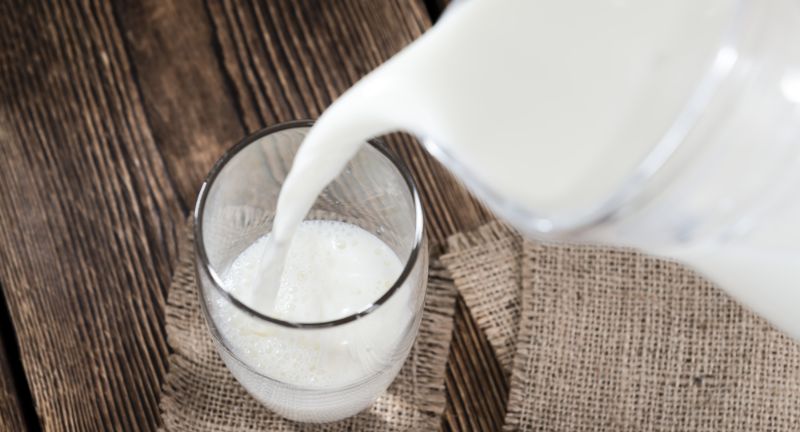
Shutterstock
Whole milk contains high levels of saturated fats, which can contribute to increased cholesterol levels and a higher risk of heart disease. It is a key ingredient in many diets but can be easily substituted with lower-fat or plant-based milk alternatives without significantly altering taste or nutritional value. Options such as almond, soy, or oat milk provide less saturated fat and can be beneficial for heart health. Making the switch to lower-fat dairy products or plant-based alternatives can help manage cholesterol levels effectively.
Cream

Shutterstock
Cream, used in coffee, desserts, and sauces, is another dairy product high in saturated fats, leading to higher LDL cholesterol levels. Replacing cream with low-fat or dairy-free alternatives can significantly reduce your intake of saturated fats. Light cream, milk, or plant-based options like almond or coconut milk can offer similar creaminess with less impact on cholesterol. Incorporating these alternatives into your diet can help in maintaining a healthy balance of fats without sacrificing flavor.
Fried Foods

Shutterstock
Fried foods, including french fries, chicken, and doughnuts, are notorious for their high content of trans fats and saturated fats, which can raise LDL cholesterol and increase the risk of heart disease. The process of deep-frying can add unhealthy fats to foods that might otherwise be considered healthier. Opting for baking, grilling, or steaming can provide tasty alternatives with significantly lower fat content. Reducing consumption of fried foods and choosing healthier cooking methods can play a crucial role in managing cholesterol levels.
Processed Meats

Shutterstock
Processed meats, such as sausages, bacon, and deli meats, are high in saturated fats and sodium, both of which can negatively impact cholesterol levels and overall heart health. These foods are often convenient and flavorful but should be consumed in moderation or replaced with healthier protein sources like poultry, fish, or legumes. Processed meats can also contain additives and preservatives that may have additional health risks. Choosing fresh, minimally processed meats or plant-based protein options can help reduce the intake of unhealthy fats and contribute to better cholesterol management.
Baked Goods
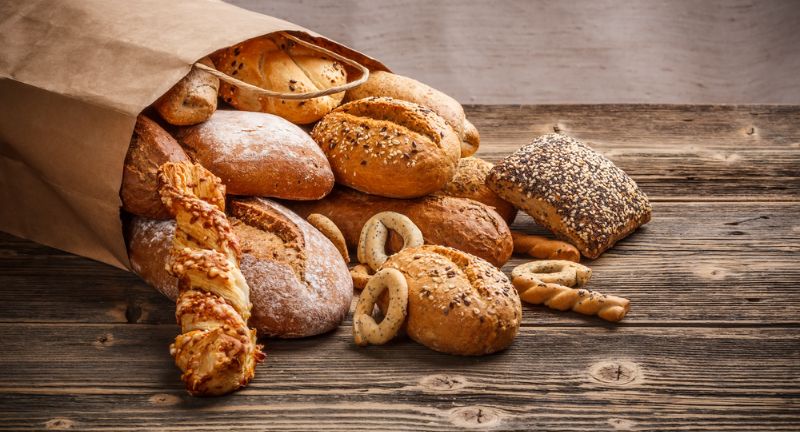
Shutterstock
Baked goods like cakes, cookies, and pastries are often high in saturated and trans fats, which can contribute to increased cholesterol levels and the risk of heart disease. These treats are typically made with butter, shortening, or margarine, all of which are high in unhealthy fats. Opting for baked goods made with healthier fats, such as those from avocados, nuts, or seeds, can be a better choice for cholesterol management. Additionally, making homemade versions allows for control over ingredients, helping to reduce the intake of saturated and trans fats.
Ice Cream

Shutterstock
Ice cream is a popular dessert that is high in saturated fats and sugars, contributing to higher cholesterol levels and an increased risk of heart disease. While it’s a favored treat for many, there are numerous lower-fat and lower-sugar alternatives available that can satisfy sweet cravings without negatively impacting cholesterol. Sorbets, frozen yogurt, and ice creams made with almond, soy, or coconut milk offer delicious alternatives. Moderation is key, and opting for these healthier versions can help maintain a balanced diet while still enjoying a sweet treat.
Egg Yolks
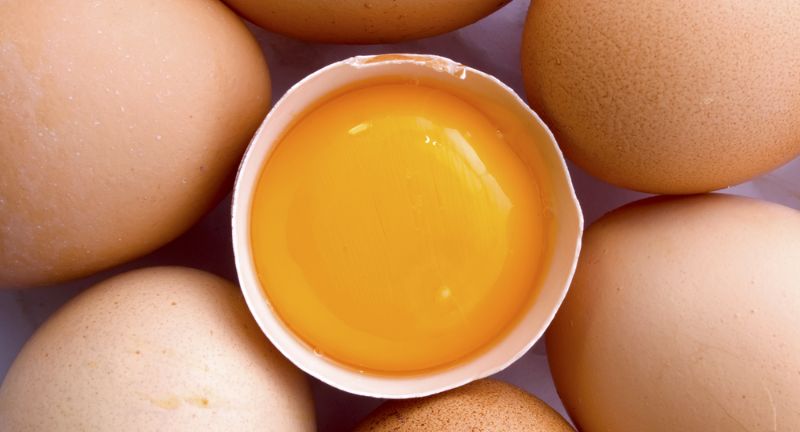
Shutterstock
Egg yolks are a well-known source of dietary cholesterol; however, they also contain important nutrients. For individuals with high cholesterol, consuming egg yolks in moderation or opting for egg whites can help manage cholesterol levels. Recent studies suggest that the impact of egg consumption on blood cholesterol is less significant than previously thought, especially when compared to the effects of saturated and trans fats. Incorporating eggs wisely into a diet, by balancing with other low-cholesterol foods, can be part of a healthy eating plan.
Fast Food
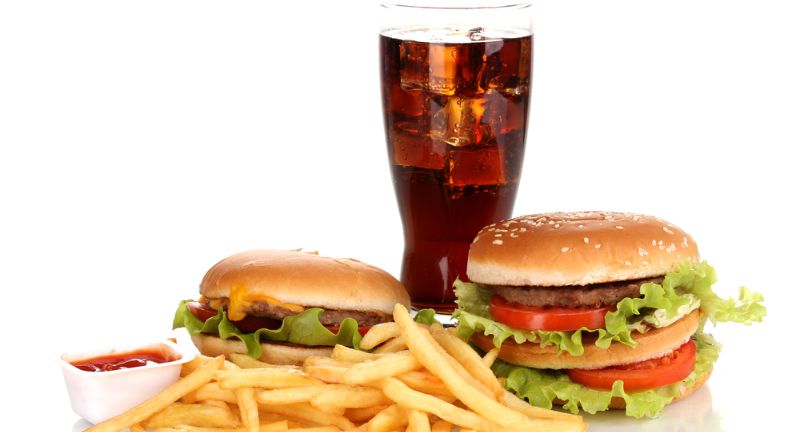
Shutterstock
Fast food is often high in saturated fats, trans fats, calories, and sodium, all of which can contribute to increased cholesterol levels and a greater risk of heart disease. The convenience of fast food makes it a popular choice, yet regularly consuming these meals can have detrimental health effects. Healthier fast food options, such as salads with grilled chicken or wraps, can be better choices when eating out. Limiting fast food intake and choosing healthier options can significantly improve dietary habits and help manage cholesterol levels.
Coconut Oil

Shutterstock
Coconut oil has gained popularity for its potential health benefits, but it is high in saturated fats, which can raise cholesterol levels. While some studies suggest coconut oil may have a more neutral effect on heart health compared to other saturated fats, it should still be used in moderation. Alternatives like olive oil or avocado oil offer healthier fats that can positively affect heart health. Integrating a variety of oils into your diet can ensure you get the benefits of different types of fats while managing cholesterol levels.
Palm Oil

Shutterstock
Palm oil is often found in processed foods, baked goods, and some margarines, and is high in saturated fats, which can contribute to increased cholesterol levels. Its widespread use in the food industry is due to its low cost and versatile properties. However, the environmental impact of palm oil production is also a significant concern. Choosing products that use sustainable or alternative fats can help reduce cholesterol intake and support environmental sustainability.
Margarine

Shutterstock
Margarine, once touted as a healthier alternative to butter, can contain trans fats, which are even more harmful in raising cholesterol levels. The health impact of margarine varies depending on its ingredients and production process, with some modern varieties being free from trans fats. It’s important to read labels and choose margarines that are non-hydrogenated and low in saturated fat. Opting for plant-based spreads and oils rich in unsaturated fats can provide heart-healthy alternatives to traditional margarine.
Shellfish

Shutterstock
Shellfish, such as shrimp and lobster, contain cholesterol, but they are also high in protein and other nutrients. While shellfish can be part of a healthy diet, individuals with high cholesterol should consume them in moderation. The American Heart Association suggests that the key is not avoiding shellfish entirely but rather how they are prepared and consumed. Grilling, baking, or steaming shellfish instead of frying can minimize added fats, making them a healthier choice for those monitoring cholesterol levels.
Fatty Cuts of Pork

Shutterstock
Fatty cuts of pork, such as bacon and pork belly, are high in saturated fats, which can lead to increased cholesterol levels and a higher risk of heart disease. Choosing leaner cuts of pork, like tenderloin or loin chops, and preparing them with minimal added fats can make them a healthier option. Incorporating a variety of protein sources, including plant-based proteins, into your diet can also help reduce saturated fat intake. Limiting the consumption of fatty pork cuts and opting for healthier cooking methods can significantly impact cholesterol management and overall health.
Lard
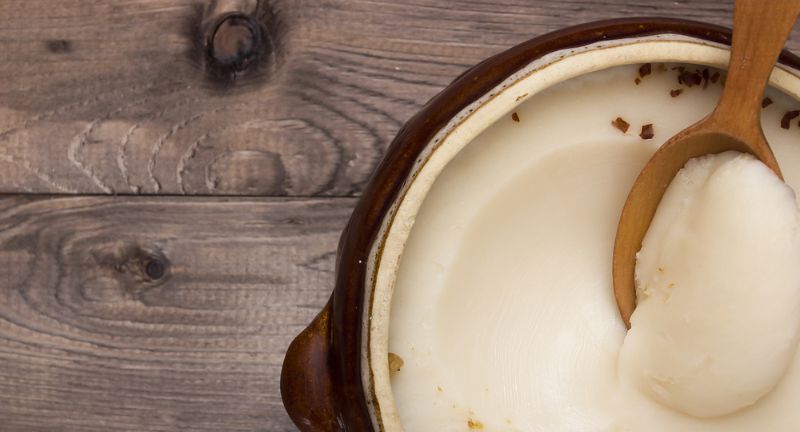
Shutterstock
Lard, a form of animal fat, is high in saturated fats, contributing to higher cholesterol levels and an increased risk of heart disease. While it is a traditional cooking fat in many cultures, there are healthier alternatives available that can provide similar results without the health risks. Using plant-based oils like olive or canola oil can offer healthier monounsaturated and polyunsaturated fats. Switching to these alternatives can help in maintaining a balanced diet and managing cholesterol levels more effectively.
Snack Foods

Shutterstock
Snack foods, such as chips and crackers, often contain high levels of trans fats and saturated fats, contributing to increased cholesterol levels. These convenient snacks are tempting but can have a negative impact on heart health if consumed in large amounts. Opting for healthier snack options like nuts, seeds, or fruits can satisfy cravings while providing beneficial nutrients. Making conscious choices to replace high-fat snacks with healthier alternatives can help manage cholesterol levels and contribute to overall health.
Pizza

Shutterstock
Pizza, especially when made with high-fat cheese and processed meats, is a significant source of saturated fats, contributing to increased cholesterol levels. However, pizza can be made healthier by choosing whole-grain crusts, low-fat cheeses, and plenty of vegetables as toppings. Opting for homemade pizza allows for control over the ingredients, ensuring a healthier meal. Making these adjustments can allow individuals to enjoy pizza while still managing their cholesterol levels effectively.
Sugary Cereals
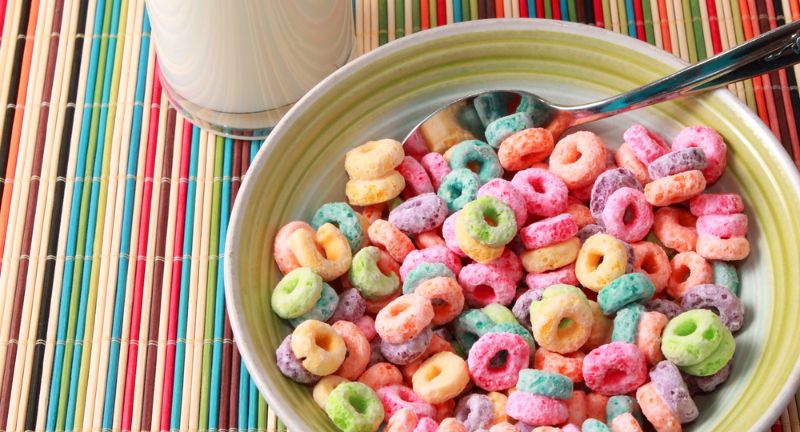
Shutterstock
Sugary cereals are often low in fiber and high in calories, which can contribute to weight gain and negatively impact cholesterol levels. Choosing cereals that are high in fiber and low in sugar can support heart health and help manage cholesterol. Whole grain cereals, oats, and bran are excellent choices that provide essential nutrients and fiber. Incorporating these healthier cereals into your diet can aid in cholesterol management and provide a nutritious start to the day.
Canned Soup

Shutterstock
Canned soups are convenient but can be high in sodium and saturated fats, which are not ideal for those managing high cholesterol. Reading labels to choose soups with lower sodium and fat content can make a significant difference in dietary intake. Homemade soups offer a healthier alternative, allowing for control over ingredients and the ability to include a variety of vegetables and lean proteins. Opting for homemade or carefully selected canned soups can contribute to a heart-healthy diet and help manage cholesterol levels.
Mayonnaise

Shutterstock
Mayonnaise is a common condiment that is high in calories and saturated fats, which can contribute to increased cholesterol levels. Opting for low-fat or fat-free versions, or alternatives like mustard or hummus, can provide flavor without the unhealthy fats. Making mayonnaise at home with healthier oils, such as olive oil, can also be a better option for those watching their cholesterol. These alternatives can help maintain the taste and enjoyment of foods while supporting heart health.
French Fries

Shutterstock
French fries are a popular side dish but are high in trans fats and saturated fats due to the deep-frying process, contributing to higher cholesterol levels. Opting for homemade fries baked in the oven with a little olive oil can offer a healthier alternative. Seasoning with herbs and spices can enhance flavor without adding extra fat. Choosing healthier preparation methods can help reduce the intake of unhealthy fats and support cholesterol management.
Heavy Cream Sauces
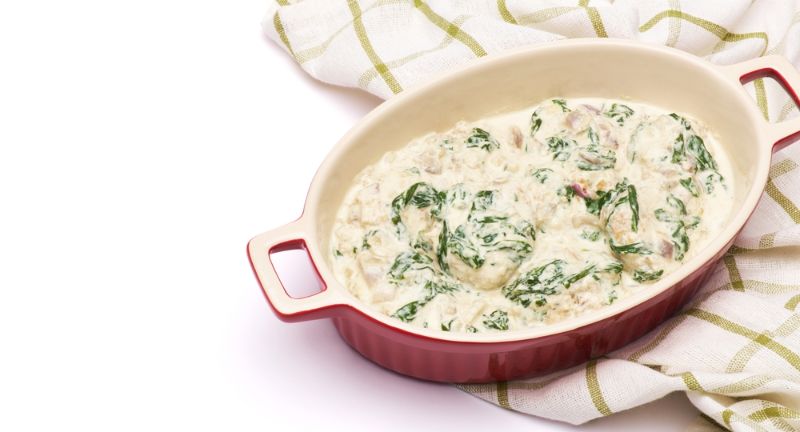
Shutterstock
Heavy cream sauces are rich in saturated fats, which can negatively impact cholesterol levels and heart health. Opting for sauces made with low-fat milk, yogurt, or broth can provide a lighter, healthier alternative without sacrificing flavor. Many traditional recipes can be adapted to include these healthier ingredients. Choosing to modify recipes in this way can help reduce fat intake while still enjoying delicious and satisfying meals.
Milk Chocolate

Shutterstock
Milk chocolate, while delicious, is high in sugars and saturated fats, contributing to higher cholesterol levels and potential weight gain. Opting for dark chocolate with a high cocoa content can offer a healthier alternative, as it contains antioxidants and can be lower in sugar. Moderation is key, as even dark chocolate is calorie-dense and should be consumed in small amounts. Choosing dark chocolate as an occasional treat can satisfy sweet cravings without adversely affecting cholesterol levels.
Sugary Drinks

Shutterstock
Sugary drinks, including sodas, juices, and sweetened teas, can contribute to weight gain and negatively impact cholesterol levels. These beverages are high in calories and offer little nutritional value, making them a poor choice for heart health. Opting for water, unsweetened tea, or sparkling water with a splash of fruit juice can provide refreshing alternatives without the added sugars. Reducing intake of sugary drinks is an important step in managing cholesterol and promoting overall health.
Alcohol

Shutterstock
Moderate alcohol consumption can have some health benefits, but excessive intake can lead to increased cholesterol levels and a higher risk of heart disease. It’s important to consume alcohol in moderation, with guidelines suggesting up to one drink per day for women and two for men. Certain types of alcohol, like red wine, have been associated with heart health benefits when consumed in moderation. However, balancing alcohol intake with other healthy lifestyle choices is crucial for managing cholesterol and overall health.
Chicken Skin

Shutterstock
Chicken skin is high in saturated fats, which can contribute to elevated cholesterol levels when consumed in large quantities. Removing the skin from chicken before cooking can significantly reduce the amount of saturated fat, making it a healthier choice. Chicken can be a lean source of protein when prepared without the skin and cooked using healthy methods such as grilling, baking, or steaming. Opting for skinless chicken is a simple way to enjoy this protein-rich food while managing cholesterol levels.
Cream Cheese
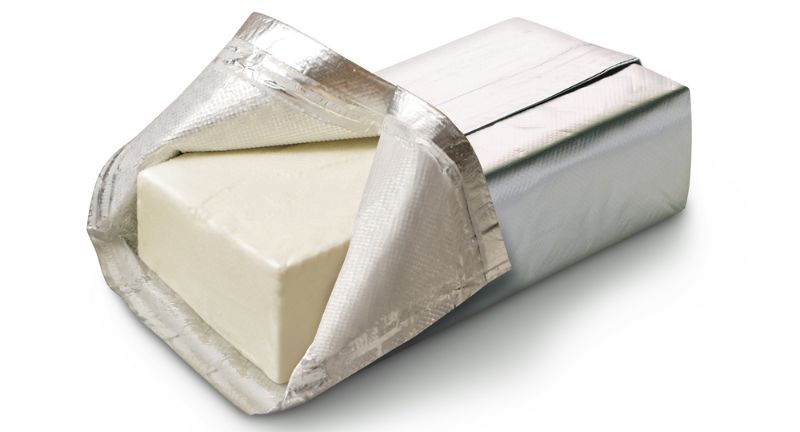
Shutterstock
Cream cheese is a popular spread that is high in saturated fats, potentially contributing to higher cholesterol levels. There are lower-fat and non-dairy alternatives available that can offer the creaminess of cream cheese without the high fat content. Using these alternatives in recipes or as spreads can help reduce saturated fat intake. Exploring different options and making small adjustments to dietary choices can have a positive impact on cholesterol levels and heart health.
Deep-fried Vegetables

Shutterstock
Deep-fried vegetables, while tempting, lose much of their nutritional value and gain unhealthy fats during the frying process. Opting for alternative cooking methods such as baking, steaming, or grilling can preserve the nutritional content of vegetables and reduce the intake of unhealthy fats. These methods not only maintain the health benefits of vegetables but also introduce a variety of textures and flavors. Making the switch to healthier cooking methods can significantly impact dietary health, helping to manage cholesterol levels and reduce the risk of heart disease.
Conclusion

Shutterstock
Navigating the complexities of a cholesterol-conscious diet can seem daunting, but armed with knowledge and dietary strategies, it’s entirely manageable. By recognizing foods that can adversely affect your cholesterol levels and exploring healthier alternatives, you can enjoy a diverse and satisfying diet without sacrificing flavor or variety. Remember, moderation is key, and making incremental changes to your eating habits can lead to significant improvements in your cholesterol levels and overall heart health. Embrace these adjustments not as restrictions but as positive steps toward a healthier, more vibrant life.
More From Health + Wellness
-


Brace for More Food Shortages and Rising Prices
-


Foods That Can Help Unclog Your Arteries
-


New York: 5 Minute Beach Cleanup Removes 15 pounds of…
-


Menopausal Hot Flashes Getting You Down? Avoid These Three Treats
-


Popular Foods Could Wreck Your Cholesterol Levels
-


New Study Looks at Television Watching and Coronary Heart Disease
